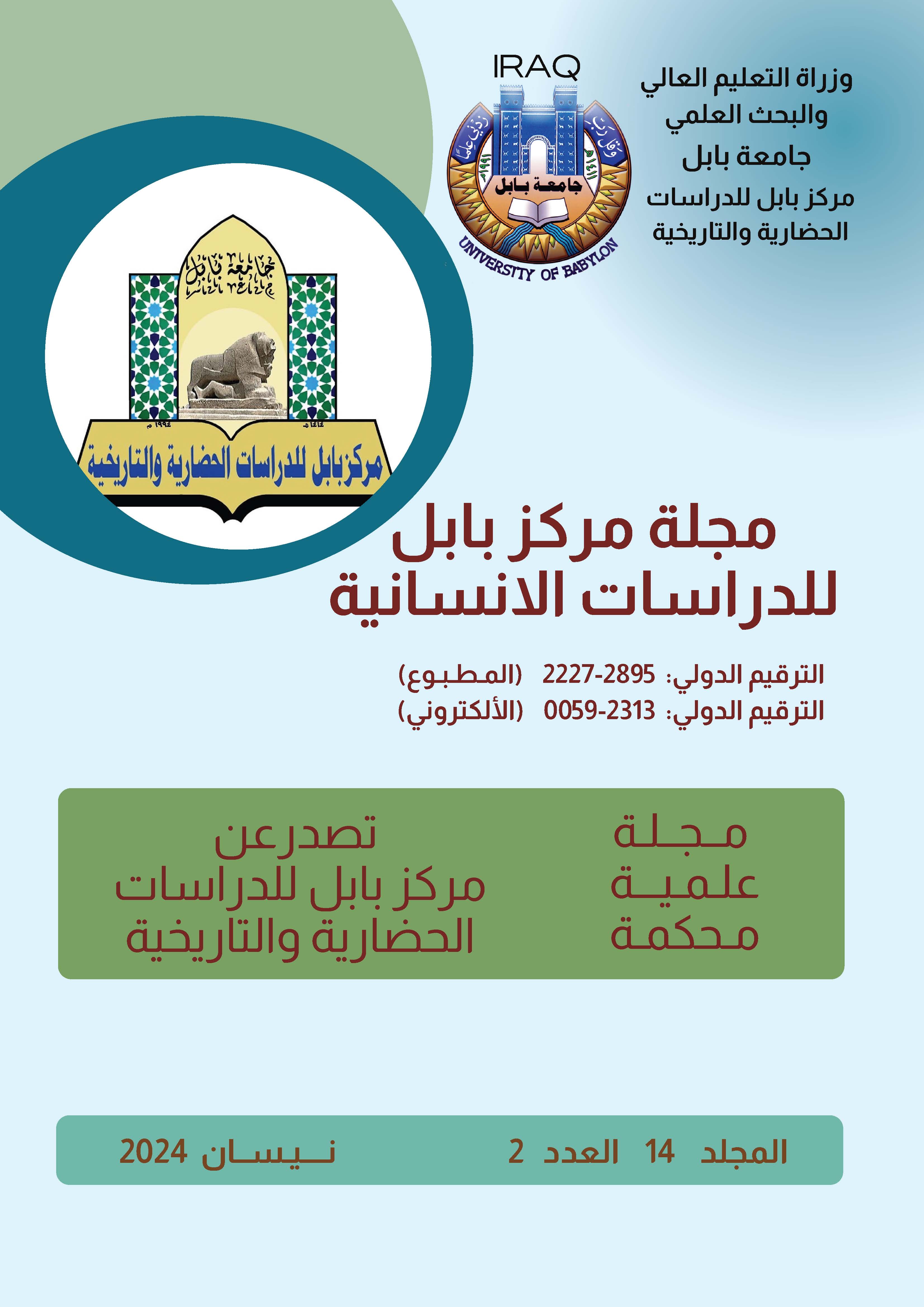The phenomena of verbal commonality and spatial inversion in Semitic languages (a comparative study)
Keywords:
verbal common, spatial heart, Semitic, languages, ArabAbstract
The research is, an attempt to shed light, on the phonetic phenomena that Semitic languages share, which are the phenomena of verbal commonality and spatial reversal in Semitic languages. We began our research with an introduction and definition of this phenomenon, the nature of the verbal common in the Semitic languages, and the definitions of the linguists, both ancient and modern. The phenomenon of the verbal common was highlighted, and the research included examples of the verbal common in the Semitic languages. The verbal common was also studied with definition and examples, language and terminology, and the phenomenon of the spatial heart was addressed in Semitic languages. The research is a contribution ,to the field ,of comparative linguistic study in the Semitic language group, which requires us to study more than one language in the field of Semitic languages. There are many studies that the researcher used in writing this research, which is a serious attempt in the process of studying these languages. Since any language is subject to development according to the factors of time, place, environmental interference of different linguistic environments, and external and internal influences, these linguistic phenomena will continue with them and studies in the fields of linguistic knowledge will continue with them by specialists, and that a large group such as the group of Semitic languages with their branches and ramifications will continue. We find many linguistic phenomena due to linguistic closeness, whether in the root or other reasons that this linguistic group shares. A table was also drawn up for a group of common words in the Semitic languages that are the subject of the research, in order to inform the reader of the nature of the common words in these languages, whether they share a root or a meaning. The words were chosen randomly because we are not preparing a dictionary for them in this research, but rather to introduce the nature of these words to the reader. We relied on the available dictionaries and sources to introduce them and their meanings, perhaps as a contribution to the field of comparative linguistic study of the Semitic language group







